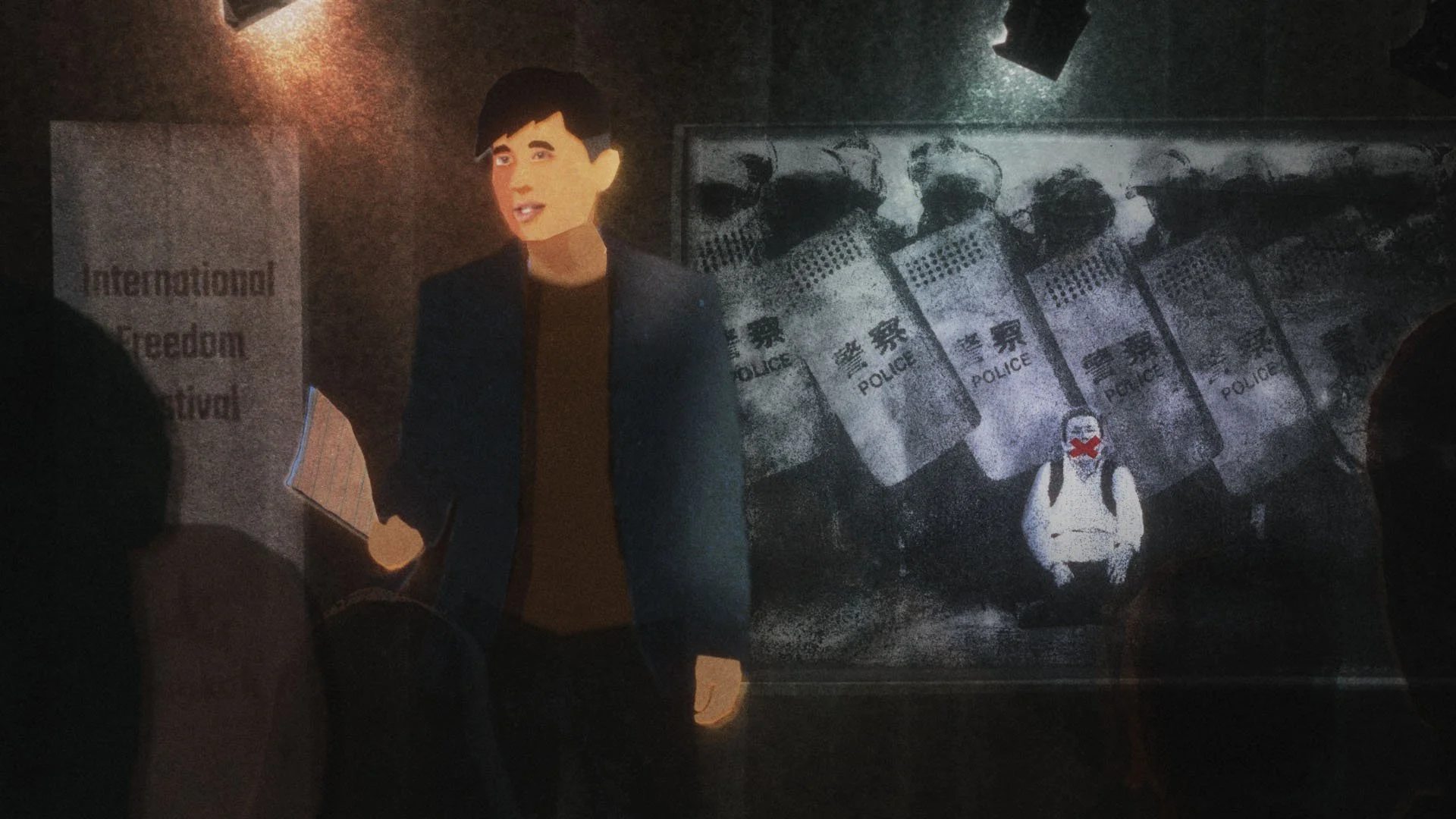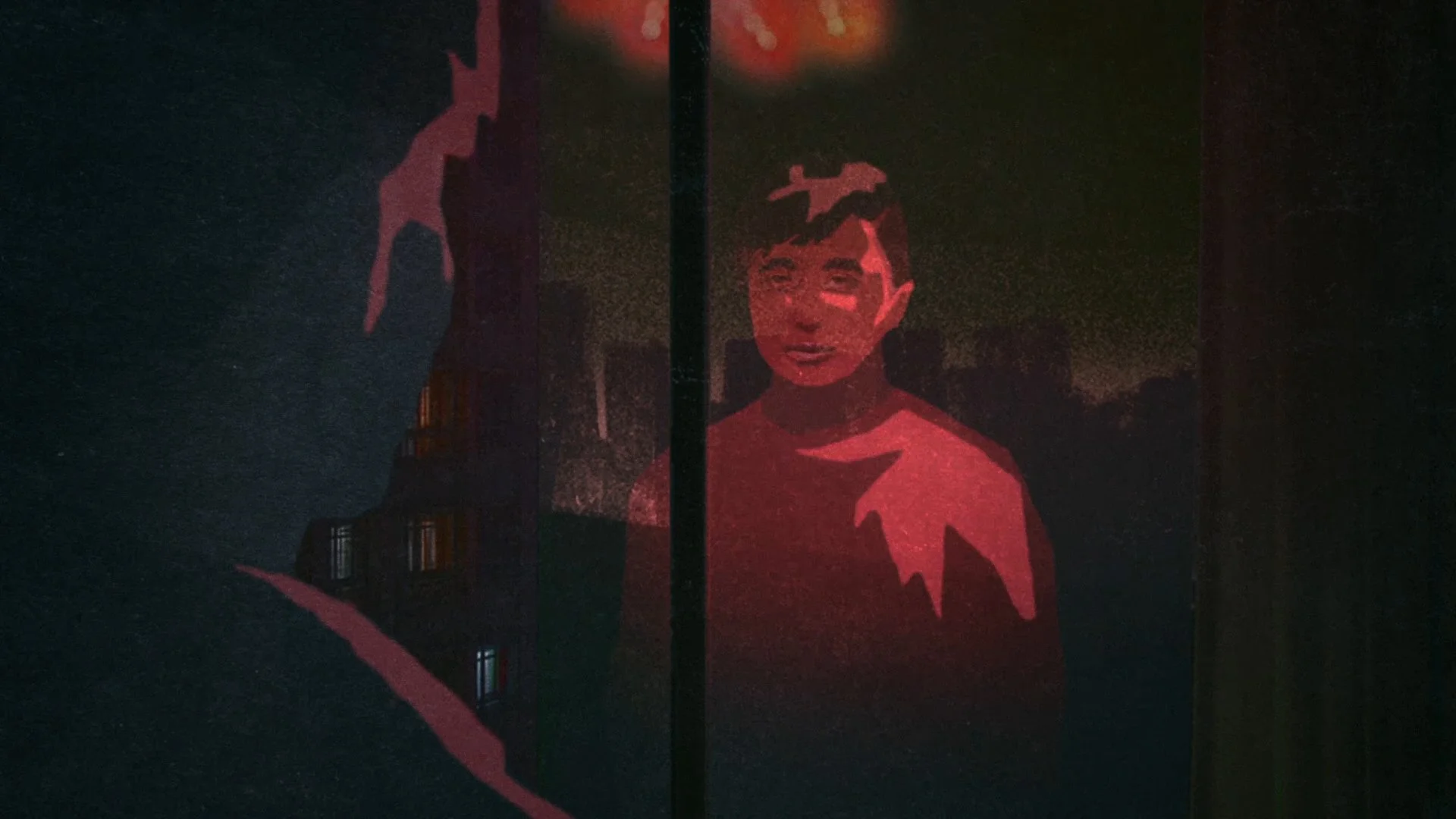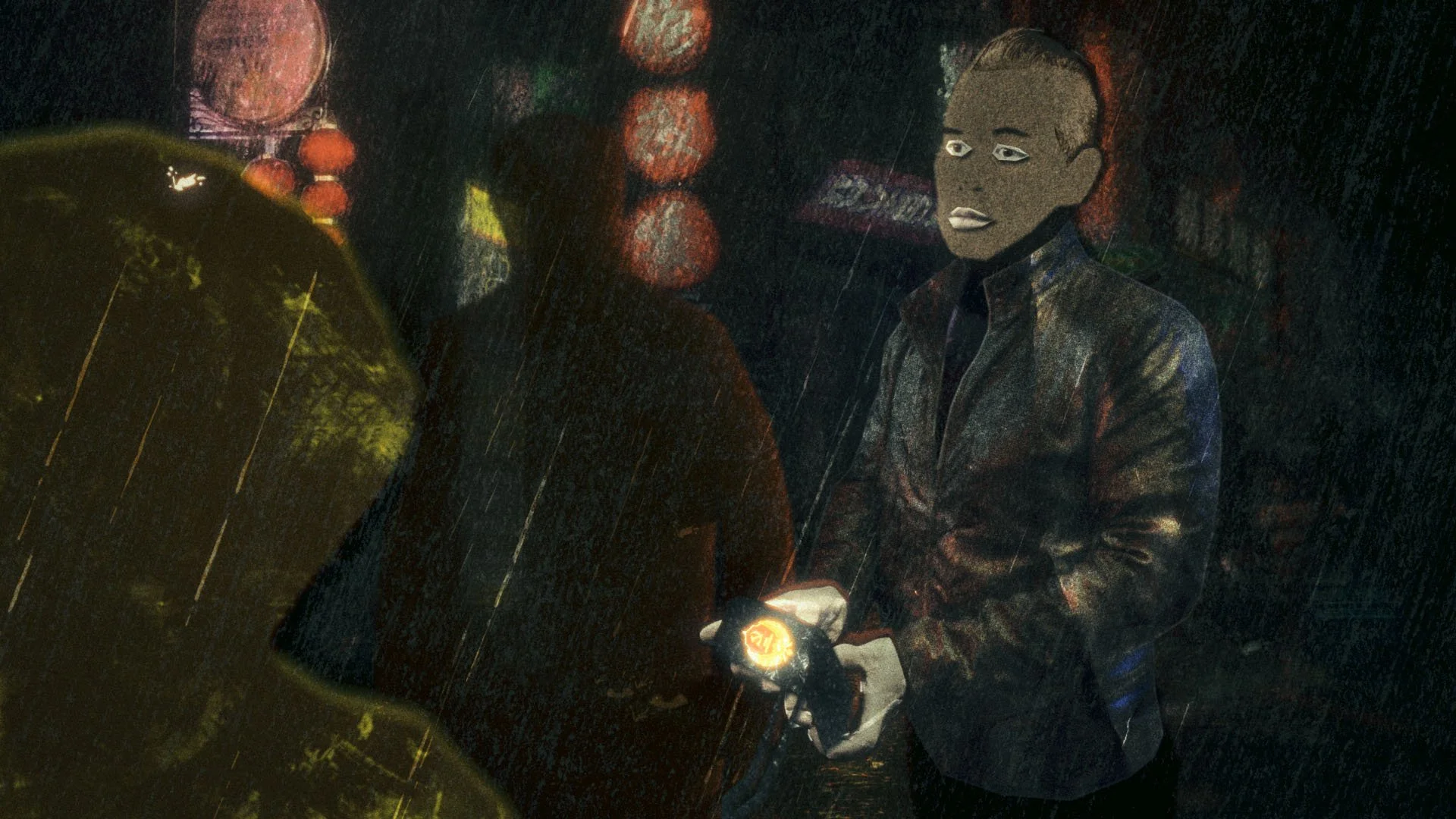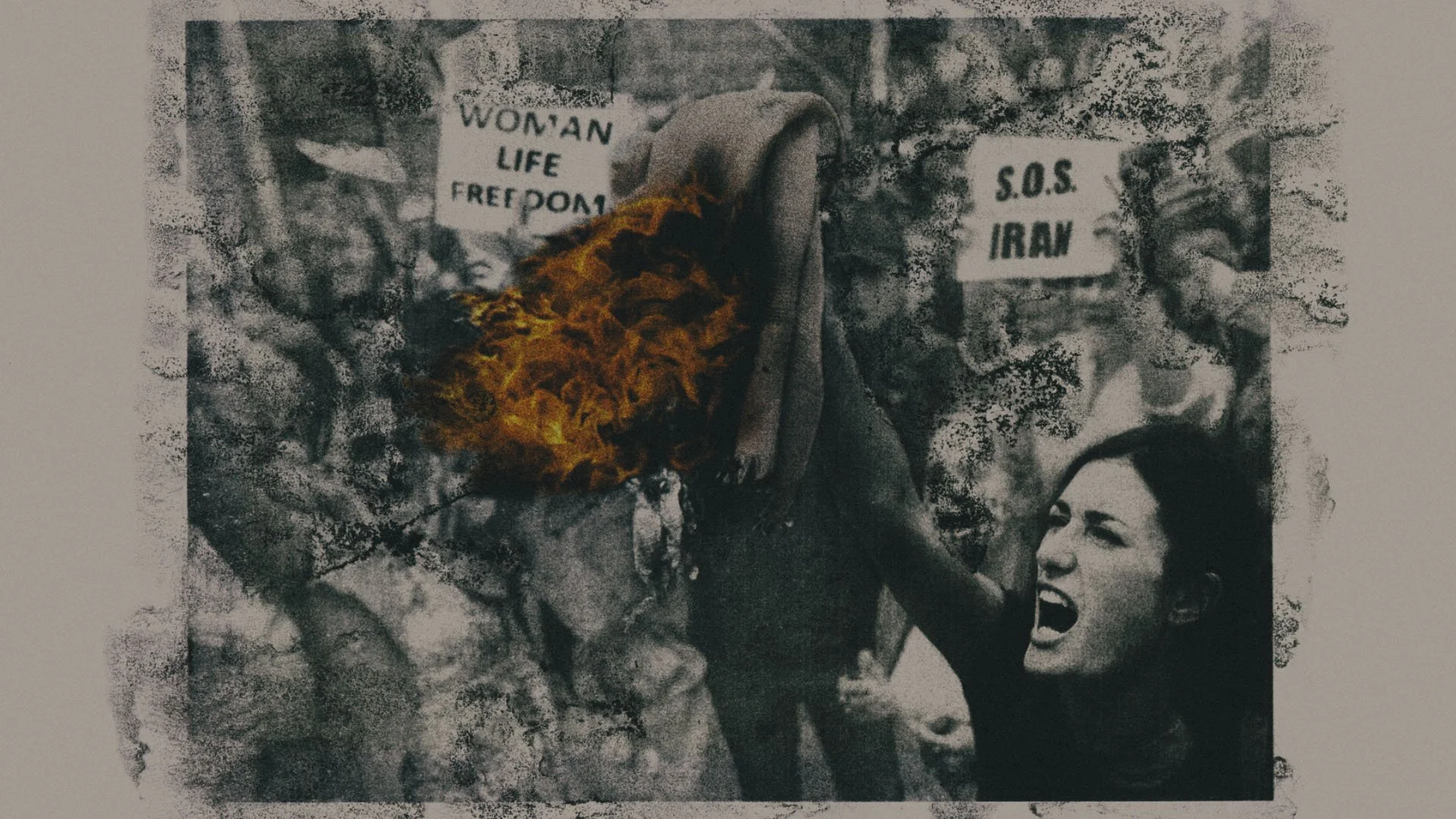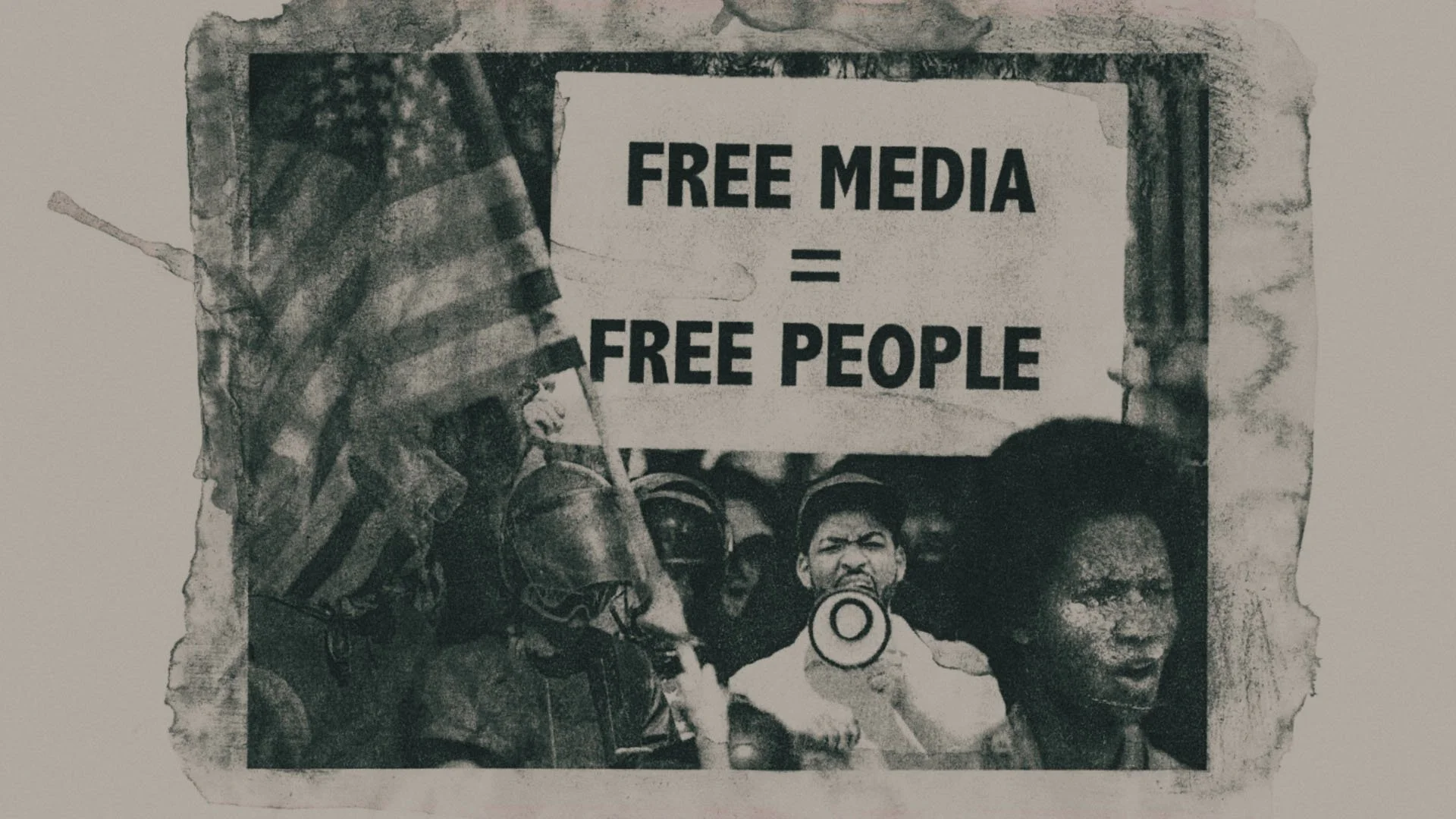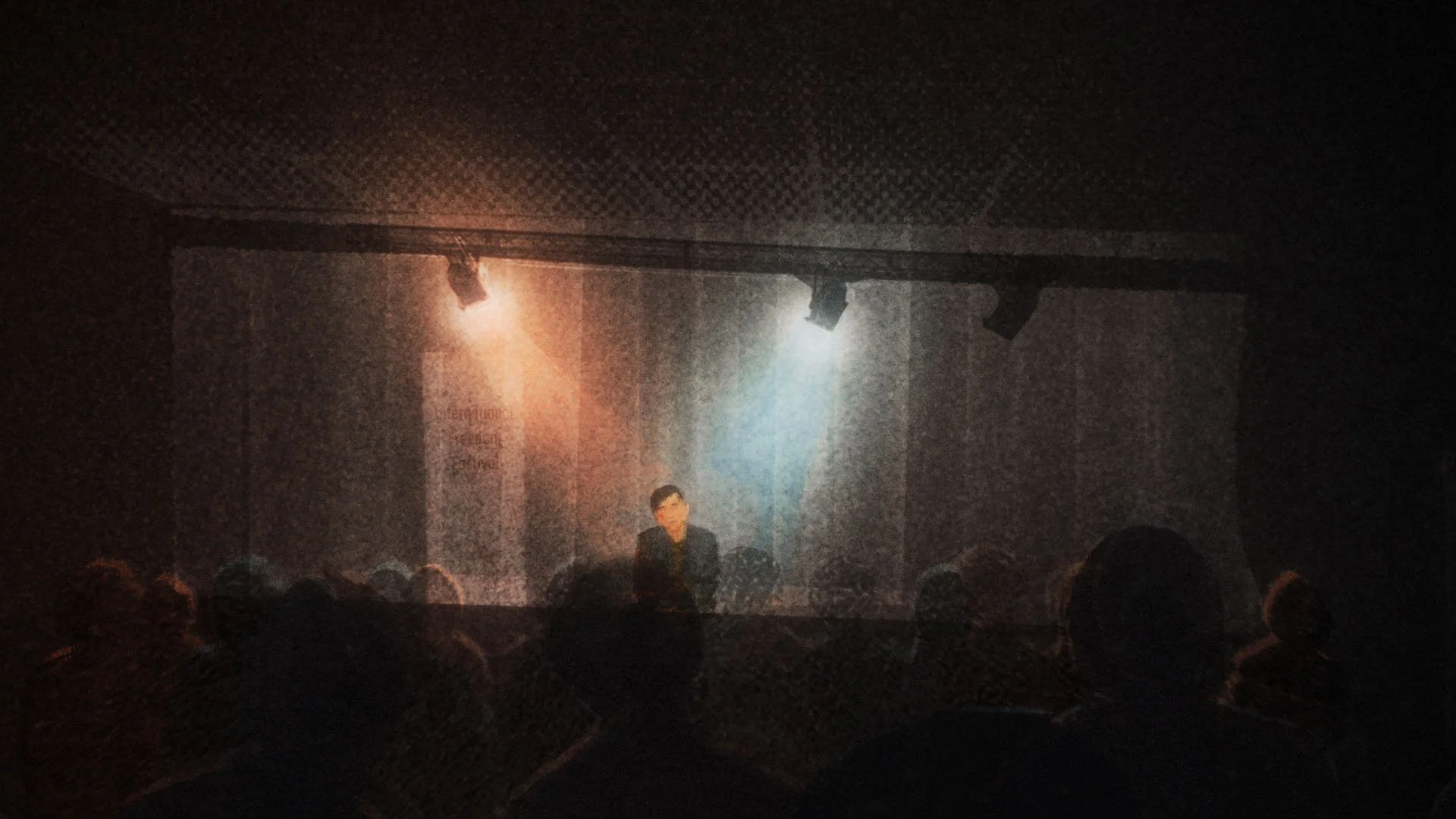BREAK YOUR WALL
and get involved
repression and (self)censorship
What if freedom can’t be taken for granted?
Repression, self-censorship and surveillance are often considered as abstract terms, linked to governments or authoritarian regimes far away. But these mechanisms of control can take many forms, restrictions of media, freedom of press, LGBTQ rights, women’s rights and access to information through digital firewalls.
Sometimes social injustice is direct and “in your face”, bans, threats, verbal or physical attacks. More often, they are subtle: an algorithm silently observing, social expectations that pressure you to hide parts of yourself, a disapproving look that says nothing, yet makes you feel judged.
And on a larger scale: politicians slowly massaging their electorate towards undemocratic values and norms, a trend that unfortunately, is becoming increasingly common.
Repression doesn’t only shape the world around us, it can settle in our minds as well. You adjust. You remain silent. Or you learn to live in two worlds, like many who can’t or choose not to show their identity openly, transparently, and safely.
In this section, we share the voices of people who have lived through this, journalists, activists, artists and everyday citizens. Their personal quotes show how oppression doesn’t only cause harm, but can also lead to awareness, resistance, and change.
-
“ During the military dictatorship in Brazil (1964–1985), the lives of the LGBTQIA+ population, especially gay people, were marked by repression, violence, and marginalization. Although homosexuality was not formally criminalized, the authoritarian regime promoted a policy of conservative morality, with strong repression of behaviors considered "deviant" from the heterosexual norm.
I knew I was a gay / queer man in my teens, and in the world I lived in, this was considered wrong and sinful. Within my own family, I didn't face prejudice but acceptance. However, the world outside my home was different.
Since the military regime was a danger to everyone, my parents taught me a rule for survival: outside the home, I should use the "I didn't see, I didn't hear, I don't know" rule. This played a crucial role in the formation of my character.
It was an arduous process to get rid of the fears and insecurities. What remained was something positive: I am a very prudent person in what I say and do. I always think about the consequences of my actions.
Today, I see many people glorifying the dictatorial period and asking for the return of the regime, steeped in ignorance and a lack of historical knowledge.
It is up to us to constantly be vigilant so that democracy does not vanish and to carry knowledge to the most distant frontiers. ”
— Birrô | Brazilian-Dutch awareness activist
-
“ Even though I was just a child during the Pinochet dictatorship in Chile, the impact of repression on the LGBTQIA+ environment affected me in ways I wouldn’t understand until much later. The regime never needed to target me directly; its power was in the chilling atmosphere it created. We lived under a government that enforced rigid, hyper-masculine, Catholic morality, where anything outside the “traditional family” was subversive or deviant. This wasn’t just propaganda; it was a psychological wall that permeated schools and homes, creating a silence so profound that the very language to discuss who you were didn’t exist.
This bred powerful self-censorship. For a young person, it was incredibly isolating. There were no role models; the only visible figures were television caricatures designed for ridicule. That mockery sent a brutal message: to be like them was to be a joke. Difference was erased through silence yet openly mocked in popular culture, teaching me survival depended on conformity.
The lesson I learned from watching those TV shows was that my secret could lead to devastating personal consequences. My fear became less about the secret police and more about those I loved. The thought of my parents looking at me with the same derision as the TV audience was terrifying. That weight pushed me to leave Chile young, searching for a place to live without hiding. In time, I found freedom and the love and acceptance of my family.”
— Pablo Alvarez | Chilean-Dutch citizen activist
on (self) censorship
on surveillance and control
-
“I have known Vogue magazine since my childhood in Iran. Every day on my way to school, my gaze would involuntary scan the numerous magazines displayed in the stalls lined up along the main road. Soon my gaze turned into a voluntary focus on Vogue as it beamed brightly amongst the others!
In time I gathered courage to approach the stalls and I would sheepishly reach for the attractive colourful Vogue. With my eyes, I devoured the images of beautiful ladies, dressed in the most fashionable modern designs, with spellbinding jewellery adorning their slim necks, arms, and long fingers, highlighted by the exceptionally sexy and unprecedented hairstyles.
With the onset of the Islamic Revolution censorship began and those elegant, classy magazines were no longer allowed into the country. Owning copies soon became an offence punishable by law. Those dazzling publications were soon replaced by heart wrenching, blood curling images of war and bloodshed.
As the years passed magazines like Vogue remained banned. However, from time to time I’d come across an issue or two, if I was lucky, at friends who came back home on holiday. While life in Iran had changed substantially, Vogue remained stylish as ever, projecting the image that life was still beautiful.
Having studied art at university, in later years I returned to Vogue as a source of inspiration and gradually something caught my attention: Gender issues. In time, I decided to paint my very own Vogue covers from memory reflecting my surroundings, embodying the passage of time, space, gender, nationality, and religion.
My Vogue series is partly a compilation of self-imposed censorship, a series that I painted in my last years still living in my beloved country of Iran in 2011. They reflect my own being, who had been censored until then, much like Vogue that was not only censored but totally banned, affirming the censorship of sexual minorities in Iran. I’ve tried to remain positive throughout my life and my paintings reflect not only the sheer callousness of reality but also the beauty and humour that surround us.
In life I’d rather focus on beauty than anger and unseemliness, where love will forever remain untarnished and pure.”
— Mahmoud Vasefi | Iranian artist in exile living in the Netherlands.
on repression and oppression
-
“The push back against LGBTQ rights around the world is notable and a development most clearly illustrated in relation to Russia where the LGBTQ community is once again the focus of attack with a new law being passed that classifies the LGBTQ community as extremist. The law jeopardises all LGBTQ activities within the country, driving people back into the closet, organisations underground - the fear that any openness could result in criminal investigations, fines and/or lengthy prison sentences (10 years). It is a devastating development especially when the LGBTQ community had fought hard for many years, in a highly challenging context, to bring positive change to the country.
In spite of the situation Side by Side LGBTQ Film Festival continues with its work. In recent times one of our most successful projects has been the creation of a Short Online Film Library. The library is a unique opportunity for people to watch queer film content that is now starting to be erased from streaming platforms, festivals and cinemas in Russia.
In the 18 years that our festival has operated we saw the positive, powerful impact that queer films have - allowing people to recognise themselves, feel less alone and imagine a life of dignity and acceptance. In the present climate, it is more urgent than ever before to keep such information flowing and telling our queer stories. All people have the right to live without fear, judgement and discrimination and the library serves as a way of amplifying our continued queer fight and resistance.”
— Manny de Guerre | Side by Side LGBTQ Film Festival (formerly based in Russia, now in exile)
-
I’ve been asked before to talk about repression and censorship in a personal way, but it’s never been easy. The deeper the wound, the fewer the words. Maybe that’s what censorship really does: it teaches silence to live where language once was. Still, if distance can count as a kind of testimony, then the fact that I’ve lived away from my country for years, unable to return, is already a story on its own: a shape of repression, and at the same time, a trace of escape.
In reflecting on Breaking Walls, I want to speak through an example from Iranian cinema; a space where repression and transformation are always side by side. Censorship has buried countless voices in silence, but the few that make it through sometimes become its strange, brilliant, illegitimate children. In an environment where even the illusion of freedom is denied, hope and persistence are the only ways to live. Even pessimism feels like a privilege.
The late Iranian filmmaker Nasser Taghvai, who passed away not long ago, once said: “I know only two kinds of art: the art of societies with censorship, and the art of those without it.” That sentence has stayed with me ever since. It reminds me that for many artists, the first thing we face is not inspiration, but restriction. In such a world, art becomes both resistance and negotiation - a slow, steady way of breathing within what tries to suffocate you.
Repression wants everything to sound the same. It flattens voices into one tone. But that effort creates its opposite: difference. When words are cut, imagination finds other routes. Images begin to say what speech cannot. Silence starts to speak; metaphor becomes survival. Out of this, Iranian cinema built a language of absence: where what’s unseen and unsaid becomes the real meaning.
Of course, we can’t hear the unheard. But next to that silence, a new sensitivity grows: a way of reading between lines, of listening to the texture of quiet. Maybe repression doesn’t destroy meaning; it only changes how we listen.
That’s why I don’t see censorship only as loss anymore. It’s violent, yes, but it also hides a strange kind of endurance. People who live under it learn to turn fragility into strength, to make form out of limits, and meaning out of silence.
I’ve learned that repression has no geography. Here, in the so-called free world, it works in quieter, invisible ways: internalized, polite, almost voluntary. People go along with it without even noticing. The walls haven’t gone away; they’ve just become transparent. Maybe this is also what the film Breaking Walls is trying to say: that art, even when born from constraint, still reaches for freedom; maybe not against silence, but through it.
P. F. | poet, artist, activist
on activism
-
“Being closeted was due to feeling unwelcome in the US. The constant jokes of being "fruity" or limp wrists etc. That was sinorelevant in music, comedy, and daily life growing up made it hard to attempt to be open and share who I truly was. Society saw me as a joke. While I did not. As a defensive mechanism obviously one would retreat into a shell on an act of self-preservation. When I came out to my family in middle school, I was widely accepted and no one cared. It was then the realisation of how jokes and the 'otherization' of a group can be detrimental. By high school I was surrounded by theatre, STEM, and sporty peers who by large accepted each other. Further showing, I wasn't a joke.
I came from a compassionate family and some of whom were into politics. After stepping into the light and living my truth I was able to fully embrace my personality and passions. I spent my High-school years volunteering at several places in my hometown, a local hospital, local cultural venues, and in support of our national park. I learned to take my natural shyness and leverage that to be a voice for not only myself but for others. I wanted to be comfortably uncomfortable joining the high-school newspaper and working my way to the top, as a student writer for my hometown newspaper, I strove to give a voice to those overlooked.
As my confidence soared, I made the leap to attend University in London studying politics and history. My debate skills fine-tuned and I fell deeper in love with fighting for changes from the inside. And taking the knowledge I had of the system and breaking it down to my peers who were less engaged. I became very active in the Democratic party and when moving to the Netherlands, I served as Secretary, Chair, and now Vice-Chair of Democrats Abroad Netherlands for a new board to help with the changeover. In a lovely turn of events, the one person that made fun of me for being gay sought me out years later and apologised. And in my fairytale ending I met my husband 6 hours after arriving in the Netherlands. My one year stay has now been a decade long with a partner who supports me on my journey of inclusivness - Out of the shadows and into the light.”
— Tre' Shawn L. Griffin-Noordermeer | Vice-Chair, Democrats Abroad Netherlands
-
“Beginning in the early days of animation, animated documentaries have been a strong voice against governmental and social oppression. Dating back to 1918, when Winsor McCay depicted The Sinking of the Lusitania and created the first animated documentary, the genre has evolved in psychological depth and political narrative. This evolution has enabled filmmakers to explore deeply personal stories, psychological struggles with mental and physical struggles, political narratives, and overlooked events.
In 2008, Waltz With Bashir director Ari Folman combined the themes of war and memory loss to recreate personal events that occurred during the 1982 Israeli War with Lebanon. Although he was an infantryman in the war, he had no memory of being part of the bloody Sabra and Shatila Massacres. Through interviews with other eyewitnesses and talks with psychologists, Folman was able to confront that terrible massacre and record the process on film.
The story of a gay football hooligan in director Jan-Dirk Bouw’s I Love Hooligans is a compelling portrait of a lonely, tortured man longing for warmth, security, and love in a world where he is forced to hide his real self from lifelong football hooligan comrades. The power of this film has stayed in my head since I first saw the film in 2013. It is a reminder of how society can force an individual to hide his true identity to gain social acceptance from his peer group.
News broadcasts on television can give an overview of the horrors of war in 60 seconds but animation brings a very personal story to life when it is voiced by the actual person that experienced it. Director Anastasiia Falileieva relates her horrifying story of she and her boyfriend’s flight from Kyiv at the onset of Russia‘s full scale invasion in her 2024 film I DIED IN IRPIN. Along with simple charcoal frame by frame drawings on paper the story is a chilling account of how it feels to be caught up in a war zone.
We are living through turbulent times right now, which makes animated documentaries even more important than ever. They act as a voice to speak out against corrupt political leaders and the atrocities of wars that are raging on two continents, which, if allowed to continue unchecked, could lead to World War III.”
— Nancy Denny-Phelps | animation journalist and historian. She writes for Animation World Network.
-
“Because of Extinction Rebellion we’re more aware that our planet is on fire / burning. Because of activism we finally got rid of that horrible Zwarte (Black Face) Piet. Because of activism things are moving. That’s not bad, that’s fantastic.”
(Extract VPRO podcast ‘Nooit meer slapen’ - 3 juli 2025.)
— Fréderike Geerdink | Dutch freelance journalist and former Turkish correspondent, author of Alle journalistiek is activisme
queer / intersectional perspective
-
“I recently learned that the Department of Justice has issued subpoenas to hospitals and clinics across the United States demanding the release of private medical information of transgender patients. This is yet another aggressive move that targets transgender people and it’s disconcerting for many reasons—not least because the data collected could be used to further discriminate against transgender youth.
I was already middle-aged when I came out as a trans man, and I often wonder if my life would have been better if I’d had the courage to transition sooner. It’s hard enough to struggle with gender identity as a child and teenager when your body is changing rapidly and peer pressure exerts a powerful pressure. Adding inflammatory anti-trans rhetoric into the mix could do immeasurable damage.
Now, more than ever, I’m inspired to support transgender youth. To feel that others have your back can make the world of difference. I believe it can even be lifesaving.
By attempting to restrict transgender people’s lives, perhaps the U.S. administration hopes to deny the very existence of transgender people. What they don’t want to acknowledge, however, is that transgender people have always existed—throughout history and on every continent. I want to help make sure that they continue to exist.”
— Aron Cleary | writer, Los Angeles
-
“Princess is my song about grieving a lost authentic self. I used to be a very effeminate child, which was beaten out of me, forcing masculine mannerisms, which did not come naturally to me. However, in the second half of the song there is a bit of a hope to find my true self again so many years later.”
— Kristóf Hajós | singer-lyricist Princess - music by Stefan Breuer | C & P: Bitterfly Music, Amsterdam 2023
-
“Families are great keepers of secrets. Nowhere more so than when they are busy snuffing out the queer flame. Burn the diaries, the letters, let propriety and breeding prevail. Queers have a hand in this too: censoring their younger selves, letting an august wisdom win out over the quick shags of their youth. Truth-telling and legacy are uneasy bedfellows. Publish and be damned!”
— Padraig Rooney | poet, novelist and author of Rebel Angel: The Life and Times of Annemarie Schwarzenbach
make a difference (get inspired)
As the protagonist in Breaking Walls shows us, what holds us back in life can also become a source of inspiration. What challenges or blockages do you personally face? How might your mind be hijacked, and how could you transform that into powerful action?
There are many ways to get engaged and have your voice heard, through art, protest, organizing a local meet-up or screening, starting a discussion group, sharing personal stories online, or simply standing in solidarity with those who can’t speak out. Every action, no matter how small, helps break down the walls of silence.
international organizations; repression, censorship, human rights
Below you’ll find a range of links to organisations and info about their activities that may inspire you to reflect on these questions.
-
international organizations; repression, censorship, human rights.
Reporters Without Borders (RSF)
Works worldwide to promote press freedom and protect journalists.
https://rsf.orgHuman Rights Watch
Investigates and reports on human rights violations worldwide, including censorship and queer rights. https://www.hrw.org
Freedom House
Publishes an annual report on global freedom, including internet freedom and political repression. https://freedomhouse.org
Bits Of Freedom
Bits of Freedom stands up for internet freedom by protecting basic online rights to freedom of communication and privacy. https://www.bitsoffreedom.nl
Electronic Frontier Foundation (EFF)
Defends digital civil rights; fights against online surveillance and censorship. https://www.eff.org
Access Now
Protects the digital rights of at-risk individuals, especially in repressive regimes. https://www.accessnow.org
Democracy & Media
A foundation for independent media that empowers informed public participation and holds power accountable in a democratic society. https://sdm.nl/en/
ARTICLE 19
International NGO defending freedom of expression and access to information.
https://www.article19.orginternational LGBTQ+ organizations
OutRight International
Works globally to protect the human rights of LGBTQIA+ individuals, including in Asia. https://outrightinternational.org
ILGA World (International Lesbian, Gay, Bisexual, Trans and Intersex Association) The largest global LGBTQ+ umbrella organisation; focuses on research, policy advocacy, and networking. https://ilga.org
The International LGBTQ+ Rights Program – Human Rights Watch
A specific division within Human Rights Watch focused on queer rights.
https://www.hrw.orgAll Out
An advocacy platform that runs international campaigns for LGBTQ+ rights. https://allout.org
GATE (Global Action for Trans Equality)
Focuses on trans rights and intersectional justice worldwide. https://gate.ngo
call to action
You might feel a strong urge or need to take action yourself. If so, here are some practical steps and examples to help you get started and make a difference in your own way.
1. share your story
The first step might be to relate your own experiences with repression or (self)censorship and share this with others. What’s the cause? How did it gradually influence your behaviour of thinking? And how did or can you break free from it? By starting dialogue going that will inspire you, your community or individuals who, for various reasons, are unable to freely express themselves.
#BreakYourWall - Instagram
#BreakYourWall - TikTok
2. send a letter
Many political prisoners, activists, and dissidents fighting for freedom don’t have access to digital communication. Reaching them often means going analogue, by writing a letter. A personal message can make a world of difference. Even a few lines can offer encouragement, recognition, and a reminder that they are not forgotten. We’ve provided resources to help you get started:
Below, you’ll find a list of a few organizations - there are plenty more - where you can send letters on behalf of those who can’t speak for themselves. Your words can offer hope, strength, and solidarity to someone facing harsh and isolating conditions, day after day.
-
OVD-info - letters across borders
OVD-Info offers a platform where you can write letters to Russian political prisoners. They provide a list of prisoners, guidelines on what to write, and translation services to ensure your message is delivered. https://ovd.info/en
Dissidentby - write a letter to a political prisoner
Dissidentby allows you to send letters of solidarity to political prisoners in Belarus. By filling out an online form, volunteers will write and send your letter on your behalf. https://dissidentby.com/en
Memorial France - send letters to political prisoners
Memorial France provides a service where you can write letters to political prisoners in Russia and Belarus. They offer translation services and guidance on what to include in your letter.
https://memorial-france.org/Al-Haq -
Advocates for the rights of Palestinian prisoners and offer resources for those seeking to communicate with them. https://www.alhaq.org
useful resources
If you're unsure where to start, these organizations offer examples, letter-writing campaigns, and delivery assistance:
3. other ways to take action
There’s no single path to making a difference, every action counts. Here are more ways to contribute, support, and mobilize:
-
raise awareness
Share verified information, stories, and news about political prisoners and activists on your social media or within your community. Education helps build empathy and support.
join or support campaigns
Many organizations run petitions, letter-writing campaigns, or fundraising efforts. Joining these can amplify your impact without needing to create something from scratch.
attend or organize events
Participate in or organize peaceful rallies, webinars, or discussion groups to bring attention to human rights issues.
donate to trusted organizations
Financial support helps cover legal fees, family support, and advocacy efforts.
contact your representatives
Write or call local government officials urging them to take action or put pressure on authorities responsible for unjust imprisonment.
create art or content
Use your skills to create art like poster against repression, a video or podcasts discussing personal experiences, or writing that highlight the cause and keep public attention alive.
tips for setting something up yourself
start small and local
Begin with a small group of friends or community members who share your concern. Focus on achievable goals like letter-writing or awareness events.
partner with existing organizations
Collaborate with established groups to access resources, guidance, and credibility.
use online platforms
Create social media pages, blogs, or mailing lists to build a network and share updates.
stay informed and fact-check
Always rely on trusted sources and verify information to maintain credibility.
be consistent and patient
Change often takes time. Regular, persistent efforts build momentum.

